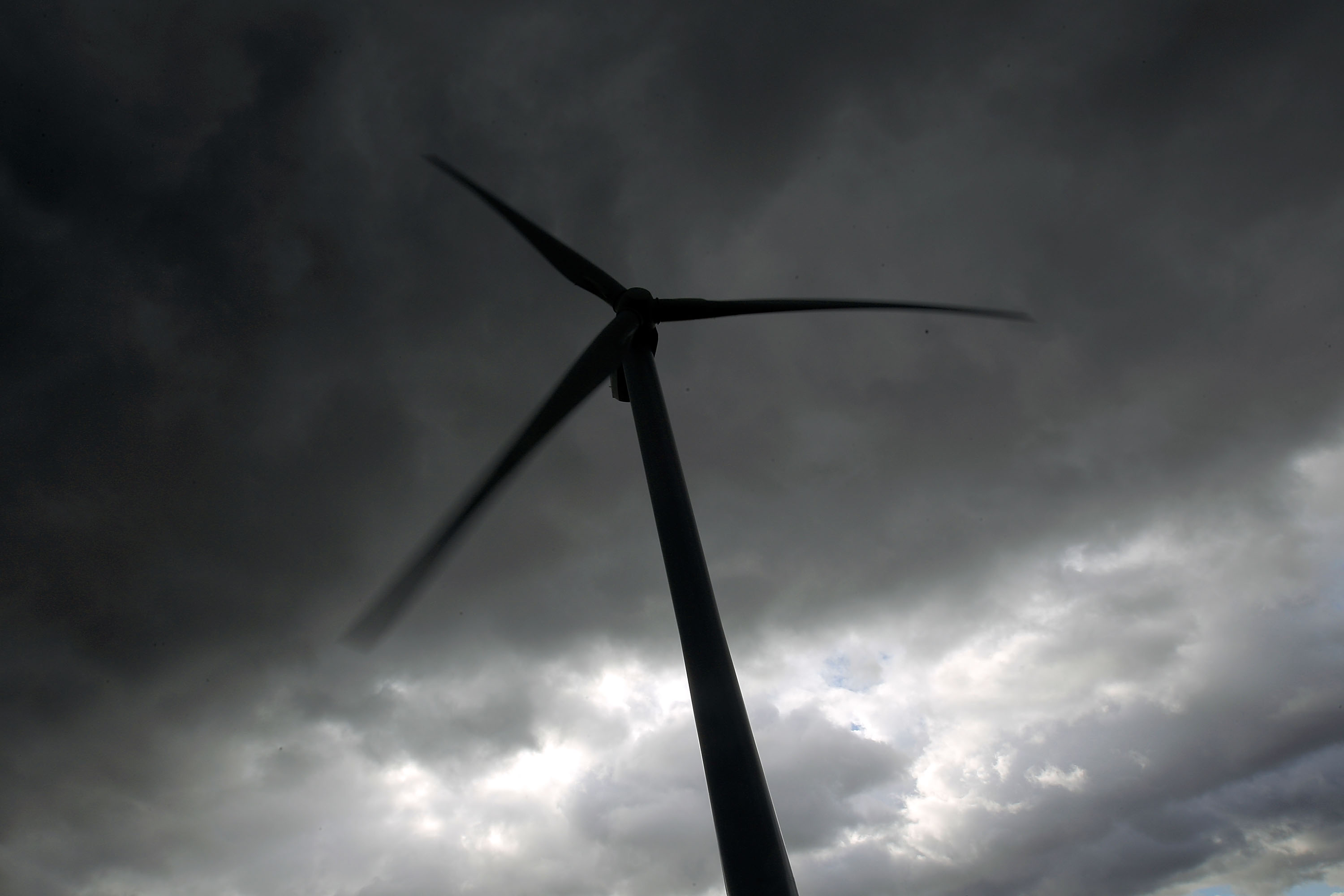Factcheck: Do windfarms cause blackouts?

As the winter is winding down, attacks on wind energy are ramping up.
In a recent editorial based on a pretty sketchy study on the UK’s energy supply, The Sun newspaper claimed that wind power’s inherent intermittency could lead to countrywide blackouts.
It observed that one day this month the country’s fleet of windfarms failed to generate even a percentage point of total power demand.
But it turns out that day – January 19th – is the exception, not the rule.
A new Unearthed analysis of UK power supply at time of peak demand shows however little the wind blows (and it hasn’t blown much this month) wind turbines almost always produce power.
The data, compiled by think-tank Sandbag using the Gridwatch website, reveals that only on two out of the 118 days leading up to January 26th did the UK’s wind turbines provide negligible power at the hour of peak demand (5pm)
These stats show 98% of the time wind represented at least 1% of the UK’s generation mix and more than 70% of the time they produced at least 5%.
In absolute terms the UK’s wind turbines produced at least 1GW of power more than 90% of the time — that’s about the same as one of our nuclear plants.
Just to reiterate, this is only at periods of peak demand (the only time that really matters), it doesn’t include smaller farms connected to regional networks (aka ’embedded wind’).
Scaremongering
We all know the wind doesn’t always blow, but does that mean the lights will go out when it drops?
You might think so. Fortunately our energy infrastructure is more complex than The Sun gives it credit for.
There are, for instance, mechanisms like the SBR and Capacity Market designed to keep power plants on standby for when the wind doesn’t blow.
And, despite what The Sun tells you, importing energy from Europe via interconnectors is actually affordable.
It turns out that the bigger your market for power, the more power stations you can draw on, the lower the price you have to pay and the less you’ll have to worry about not having enough.
Here are three reasons why variable generation is not causing blackouts:
1. There aren’t any blackouts: As a report from the Energy and Climate Intelligence Unit (ECIU) explains, there has been only one power outage in the past decade attributed to generation issues, when two power stations simultaneously lost power.
The Grid has proven adept at keeping the lights on even in times of crisis, such as the fire at Didcot B in 2014.
Most of the power shortages you’ve experiences are probably down to local distribution issues.
2. Germany and Denmark have greater grid security: These European countries have far higher renewables penetration than the UK but far fewer blackouts as well.
That’s because they have adopted a system-oriented approach, with integrated use of stuff like storage, demand response, interconnection and robust transmission and distribution.

3. Power plants were uneconomical before Ed Miliband: Sure policies like the carbon floor price have hurt the economics of new gas power plants and fewer power plants means less power, but a cost analysis shows that the numbers were pretty sketchy far before that.
These days gas plants need subsidising same as other types of energy.
And finally, let’s bust this myth once and for all: the UK’s coal plants are not closing to meet the country’s climate targets, they are closing mostly because they are old and can’t meet modern pollution standards.
Energy is complex
I was going to take this opportunity to debunk the thinking behind the Institution of Mechanical Engineers study that formed the basis of The Sun’s editorial, but the Carbon Brief beat me to it (and did a very good job).
The paper, which says the UK faces an unfathomable 55% electricity gap by 2025 because of the coal phaseout, relies on data from only one day (seemingly chosen at random) and makes a series of wrong-headed assumptions.
It writes off, for instance, the 13% power provided by wind turbines on that day ‘cannot be guaranteed’.
Sure, reports like this serve a purpose (in this case highlighting the challenges inherent in closing large power plants), but the line that the UK has to build 30 new gas plants in 10 years to bridge the gap just doesn’t make sense.
Nobody is denying that we need more – from new gas and heat plants to tidal power – but that approach fails to consider declining demand or increasing efficiency, demand side management or back-up power plants.
Plus interconnection is a better deal than you’d think.
All in all, it’s not an especially reliable report.

